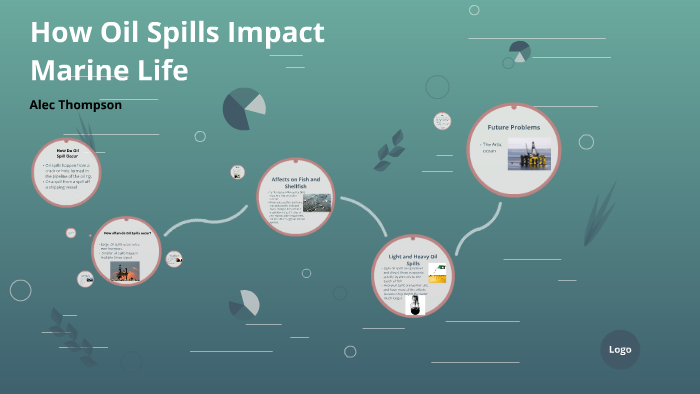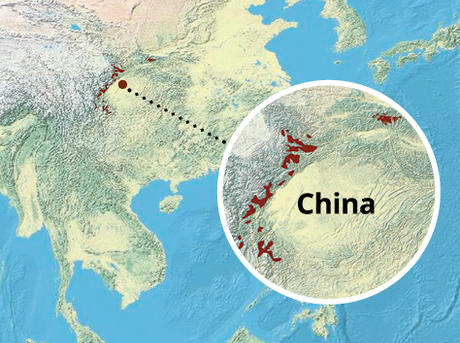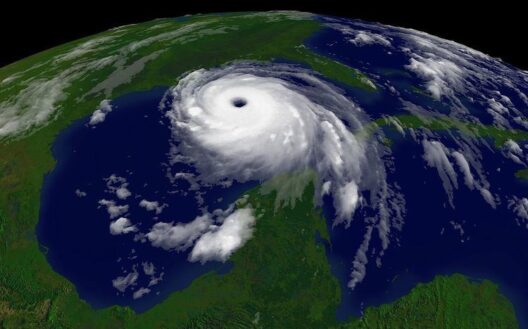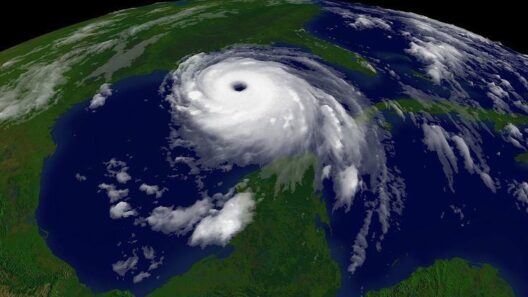The world’s oceans, expansive and vital, act as a crucial regulator of our planet’s climate. They absorb vast amounts of carbon dioxide, produce a significant portion of the world’s oxygen, and house a plethora of creatures—from the tiniest plankton to the majestic blue whale. However, as climate change accelerates, these aquatic ecosystems face unprecedented threats. One might ponder: What would our planet be like without its vibrant marine life? And yet, this is not just a philosophical question; it highlights a pressing challenge confronting humanity.
As global warming advances, the oceans are becoming warmer. This increased temperature can disrupt marine ecosystems on a grand scale. Coral reefs, often described as the rainforests of the sea due to their incredible biodiversity, are particularly vulnerable. With rising sea temperatures and ocean acidification, coral bleaching occurs when corals expel the algae living in their tissues. This loss not only affects the corals but also endangers the myriad species that rely on reefs for habitat and food. It is estimated that if current trends continue, over 90% of coral reefs will be threatened by the end of the century.
Additionally, warming waters can lead to significant shifts in marine species distributions. Fish, seeking cooler temperatures, are migrating to deeper and more polar waters, leading to altered food webs. This shift presents a challenge for fishing industries around the globe, as traditional fishing grounds may become barren. For instance, species such as cod and haddock have shown marked movements toward cooler waters, which can have dire economic consequences for coastal communities reliant on fishing.
Meanwhile, ocean acidification, a direct consequence of increased atmospheric carbon dioxide, poses another grave threat. As oceans absorb CO2, the resulting chemical reactions reduce the pH level of seawater, affecting calcifying organisms like mollusks, clams, and certain types of plankton. These organisms are foundational to marine food webs, and their decline has cascading effects throughout the ecosystem. The ramifications extend to human food security, as many coastal populations depend on these species for their livelihoods and nutrition.
Overfishing exacerbates the impact of climate change. Stocks of many fish species are declining due to unsustainable fishing practices. With the added stress of warming waters and changing habitats, fish populations may not be able to rebound. The interplay between overfishing and climate change spells a double jeopardy for marine ecosystems, threatening biodiversity and the resilience necessary for adaptation.
Another consequence of rising ocean temperatures is the intensified occurrence of marine mammal strandings. Dolphins, porpoises, and other cetaceans may find themselves disoriented and in distress due to shifts in their environments and food supplies. As their habitats change, traditional migratory routes can become perilous, resulting in increased stranding events. Such occurrences highlight the interconnected relationship between marine life and the health of ocean ecosystems.
In addition to biological impacts, climate change threatens the cultural and spiritual connections that many coastal communities have with marine life. For indigenous populations, whose histories and traditions are deeply rooted in ocean ecosystems, the degradation of these environments represents a loss of identity and heritage. The connection between climate change and the erosion of cultural practices cannot be understated.
In response to these escalating threats, what can be done on a global scale to mitigate the crisis of our oceans? The solutions are multifaceted and require collaboration at all levels, from international agreements to local actions. Integrating sustainable fishing practices is essential. Implementing catch limits, enforcing marine protected areas, and supporting aquaculture practices can help replenish fish stocks and preserve marine ecosystems.
Moreover, reducing greenhouse gas emissions is vital. Transitioning to renewable energy sources, promoting energy efficiency, and advocating for systemic changes in industries that heavily rely on fossil fuels will help slow the pace of climate change. Public awareness and education play crucial roles in driving these changes, inspiring individuals to partake in conservation efforts, and promoting sustainable consumption behaviors.
Conservation initiatives, ranging from clean-up operations to restoration projects, can bolster the resilience of marine ecosystems. Engaging local communities in these efforts not only fosters a shared responsibility but also amplifies the likelihood of successful outcomes. Grassroots movements are integral, empowering individuals to advocate for policies that protect ocean health.
Technology and innovation also play pivotal roles in ocean conservation. Research into developing new methods of carbon capture and storage, as well as techniques for restoring damaged marine environments, holds promise. Utilizing satellite technology to monitor marine ecosystems can provide crucial data to inform decisions and strategies aimed at preservation.
In conclusion, the imperative to act grows increasingly urgent as our oceans continue to face the dual challenges of global warming and overexploitation. Preserving marine life is not merely an environmental concern; it is a necessity for global health, cultural integrity, and economic sustainability. As the challenges intensify, each individual bears the responsibility of engaging in this fight. How will history remember our response to this crisis? It is time to act and protect the oceans that sustain us all.







